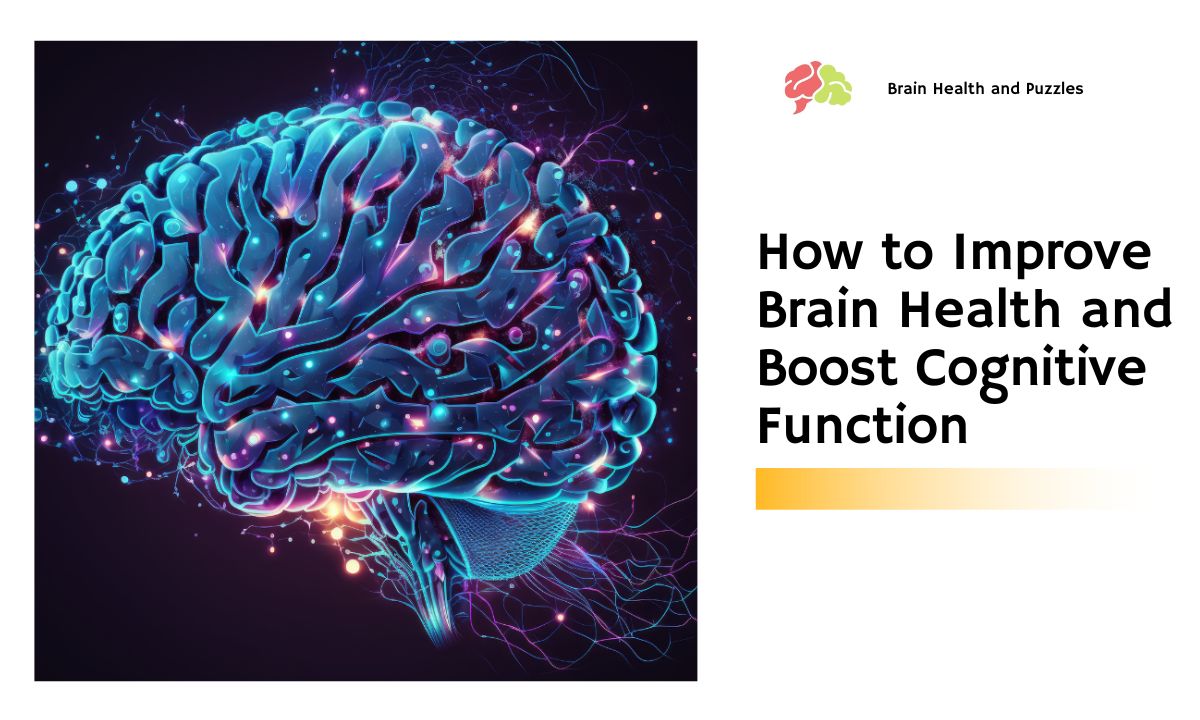Brain Food – What To Eat For The Best Brain Functioning Possible

Just like food for your body, you need brain food. Getting the best brain food means eating a healthy, balanced diet. It also means eating certain foods that are high in nutrients, fatty acids, and other stuff that your brain loves. Here are some of the best types of brain food that you can get!
Essential Nutrients for Brain Health
Our brains require a variety of nutrients to function at their best. Among these, omega-3 fatty acids, antioxidants, and various vitamins play a significant role. Ensuring an adequate intake of these nutrients is essential for maintaining cognitive function throughout life.
Foods Rich in Omega-3 Fatty Acids
Fatty Fish
Fatty fish, such as salmon and trout, are rich in omega-3 fatty acids, particularly DHA. These fats are crucial for brain health and have been linked to a reduced risk of cognitive decline.
Flaxseeds
For those on a plant-based diet, flaxseeds are an excellent source of alpha-linolenic acid (ALA), a type of omega-3 fatty acid that contributes to overall brain health.
Walnuts
Walnuts not only provide omega-3 fatty acids but also offer antioxidants that support brain function. Snacking on a handful of walnuts can be a smart choice for cognitive health.
Antioxidant-Rich Foods for Cognitive Support
Berries
Blueberries, in particular, are known for their high levels of antioxidants. These compounds help protect the brain from oxidative stress and may improve communication between brain cells.
Dark Chocolate
Yes, you read it right. Dark chocolate, in moderation, contains flavonoids, caffeine, and antioxidants, promoting blood flow to the brain and potentially enhancing cognitive function.
Spinach
Packed with vitamins and minerals, including antioxidants, spinach is a leafy green that supports overall brain health. It can be easily incorporated into salads, smoothies, or sautés.
Vitamins and Their Impact on Brain Function
B Vitamins in Whole Grains
Whole grains like brown rice and quinoa provide B vitamins that are essential for brain health, contributing to the production of neurotransmitters.
Vitamin C in Citrus Fruits
Citrus fruits like oranges and grapefruits are rich in vitamin C, an antioxidant that may help prevent mental decline.
Vitamin D in Fatty Fish
In addition to omega-3 fatty acids, fatty fish like tuna and mackerel are excellent sources of vitamin D, which plays a role in cognitive function.
Vitamin E in Nuts and Seeds
Nuts and seeds, such as almonds and sunflower seeds, contain vitamin E, an antioxidant that may contribute to slowing cognitive decline.
The Gut-Brain Connection
Beyond specific nutrients, the gut-brain connection is gaining attention in the scientific community. A healthy gut, supported by probiotics and prebiotics, is linked to improved mood and cognitive function.
Hydration and Brain Function
Staying adequately hydrated is crucial for optimal brain function. In addition to water, herbal teas like chamomile and peppermint can provide additional cognitive benefits.
Balanced Diet for Optimal Brain Functioning
Maintaining a balanced diet is key to supporting overall brain health. Including a variety of foods in moderation and minimizing processed foods contributes to cognitive well-being.
Meal Planning Tips for Brain Health
Planning meals with small, frequent portions helps regulate blood sugar levels and provides a steady supply of nutrients to the brain. Incorporating snacks like nuts, fruits, and yogurt can sustain energy levels throughout the day.
The Impact of Sleep on Cognitive Function
Quality sleep is fundamental for cognitive function and memory consolidation. Establishing a consistent sleep routine and creating a sleep-friendly environment are essential for overall brain health.
Exercise and Brain Health
Regular physical activity, especially cardiovascular exercise, promotes blood flow to the brain and stimulates the release of chemicals that support cognitive function. Incorporating exercise into your routine is a proactive approach to maintaining a healthy brain.
Mindfulness Practices for Cognitive Well-being
Practices like meditation and stress management techniques contribute to cognitive well-being by reducing stress levels and promoting a calm and focused mind.
Brain-Boosting Recipes
Blueberry and Walnut Smoothie
Blend blueberries, Greek yogurt, a banana, and a handful of walnuts for a delicious and brain-boosting smoothie.
Salmon and Quinoa Bowl
Grill or bake salmon and serve it over a bed of quinoa with sautéed spinach and a drizzle of olive oil for a nutrient-packed meal.
Incorporating Brain Food into Daily Life
Making simple swaps, such as choosing whole grains over refined grains or opting for a piece of fruit instead of sugary snacks, can have a significant impact on cognitive health. Practicing mindful eating habits and savoring each bite contribute to a healthier relationship with food.
Conclusion
Incorporating brain-boosting foods into your diet is a proactive and enjoyable way to support cognitive function. From omega-3 fatty acids to antioxidants and vitamins, the nutrients found in these foods contribute to a healthy brain throughout life. By also considering lifestyle factors like sleep, exercise, and mindfulness practices, you can take comprehensive steps to optimize your cognitive well-being.
Finally, one brain food that’s actually a drink is water. A large portion of your brain is water. When you’re feeling tired, it perks you up and promotes optimal mental functioning. Dehydration can cause long-term neural damage, so make sure you’re getting enough of it. Keep your diet rich in brain food and drink, and you’ll see major differences in your memory, thinking, and alertness!
FAQs
Q: Can supplements replace the need for brain-boosting foods?
A: While supplements can be beneficial, obtaining nutrients from whole foods provides a broader range of benefits.
Q: How often should I eat brain-boosting foods for maximum impact?
A: Aim for a balanced diet consistently rather than relying on occasional consumption for optimal results.
Q: Are there specific foods that can enhance memory?
A: Yes, foods rich in omega-3 fatty acids, antioxidants, and certain vitamins are linked to improved memory function.
Q: Can exercise alone improve cognitive function?
A: Exercise is a crucial component, but a holistic approach, including nutrition and lifestyle, yields the best results.
Q: Is it ever too late to start incorporating brain-boosting foods into my diet?
A: It’s never too late! Making positive dietary changes can benefit brain health at any age.



